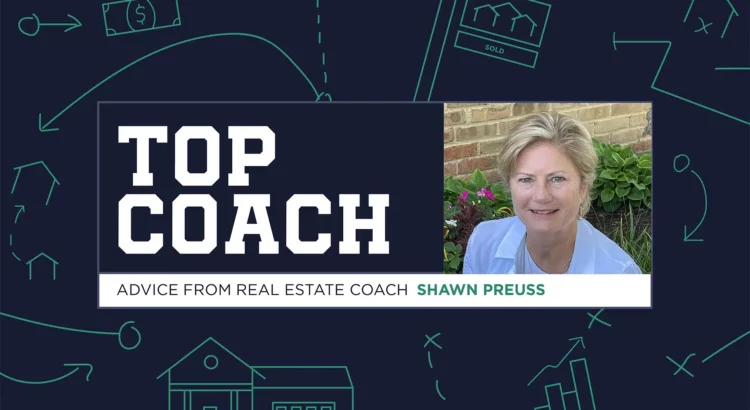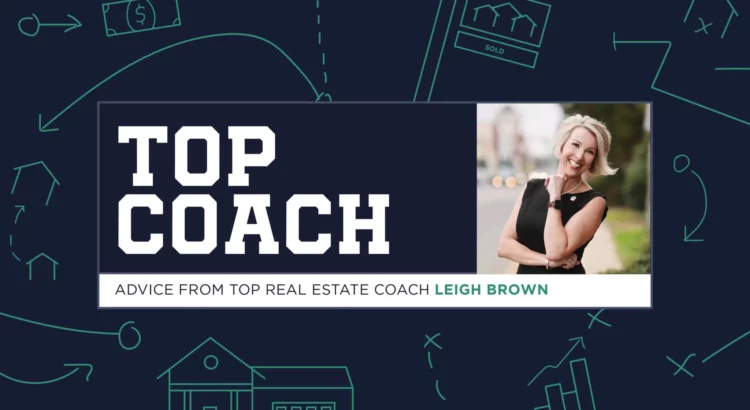By Shawn Preuss
We often think of leadership as a role, leading a group of people. We also see leading as having the ability to direct, guide, advise and mentor. Leaders are the “expert” in their industry or profession.
While this is a part of leadership, I would like to offer another perspective. I see leading as a proactive practice that brings balance to the reactivity of business and life. Proactive means being out in front, looking ahead, planning and communicating. When we are proactive, we are naturally leading, whether with ourselves or with others.
We are in a world of constant change, which puts us in reactivity rather than proactivity. If we are not careful, we could end up living our lives as a reaction to everyone and everything around us, including our business! Getting off the hamster wheel of reactivity is challenging, and it can be done, even in real estate. The question remains: How?
This is where self-leadership comes in. I define self-leadership as a proactive way of being that brings alignment between your outer-world actions and your inner-world essence. Why is this important in sales?
Sales can position us to be constantly reacting to fluctuations in the market, to meet our clients’ needs, to drive new business. All this reaction is necessary. We do need to be agile enough to react and shift. However, when we tip the scale from balance to a steady diet of reactivity, we end up confused, overwhelmed, frustrated, discontent, avoidant, resistant or even angry. This is when we most need self-leadership.
These proactive practices will help you reduce reactivity. The more you practice, increasing your self-clarity, the more you’ll be able to effectively lead others.
Silence
Communication at our fingertips has increased the noise in our lives. We feel the urge to fill the space. Silence allows us to listen deeply. Allow yourself to turn off the radio in the car as you’re driving and sit in silence. The more you increase silence in your life, the more you support yourself in hearing what your heart may be telling you is important.
Curiosity mindset
As adults, we forget the childlike magic of wondering. Our desire for knowledge supersedes our desire for wonder and exploration. Curiosity opens the space for exploration and creativity. Curiosity brings a balance to “what we know” with “what we can discover and create.” Now, take that curiosity mindset inward and step into observation of self.
Observer
We are typically focused outward to our environment, people, places and things we can see. This is our outer landscape. We have an inner landscape, our essence, the thing that drives our outer-world behavior. Becoming your own observer is all about shifting the focus from your outer landscape to your inner landscape. We are observing the many sides of self that show up through our behavior and language as a response to the world around us. The more we shift our focus from other to us, the more power we possess to create change based on what’s important to us. Observation with a curious mindset will lead us to questions.
Question
Have you ever asked yourself a question when you’re trying to remember something … what was the name of the actor who … and then three days later the answer pops into your brain? This is the power of self-inquiry. Your brain never stops working until it finds the answer! What is frustrating me about this? What am I expecting here? What’s important for me in this situation? Getting clear on where you’re coming from and owning that is a powerful practice of self-leadership.
Reflect and change
All the above practices will lead you to self-discovery. Reflecting on your discovery and what you’ve learned about yourself helps you to make choices in alignment with who you are rather than reacting solely to your outer landscape. Sustainable change comes from one’s own self-discovery and desire to live more authentically, rather than reactively.
These proactive practices of self-leadership are easily transferable to leading others through effective communication, resulting in deeper, more collaborative relationships.
Shawn Preuss is a Master Certified Coach with the International Coach Federation. She is an executive coach specializing in leadership and team development. She developed and taught the Life Coaching Certification Program and Workplace Coaching Certificate Program for the University of Wisconsin-Madison. Preuss has been coaching individuals, teams and leaders worldwide for 17 years.


